What's New
Displaying results 1511 - 1520 of 4899
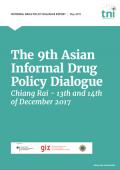
Resource | Publications,
From 12 to 14 December 2017, the Transnational Institute (TNI) and Deutsche Gesellschaft für Internationale Zusammenarbeit (GIZ), on behalf of the Federal Ministry of Economic Cooperation and Development of Germany (BMZ), in collaboration with the Thai Office of the Narcotics Control Board (ONCB) and the Mae Fah Luang Foundation under Royal Patronage (MFLF), jointly organised the 9th Asian Informal Drug Policy Dialogue (IDPD) in Chiang Rai, Thailand.
Representatives from government institutions and civil society organisations from Thailand, Myanmar, Indonesia, Cambodia, Malaysia, China, and Afghanistan, as well as several international NGOs, intergovernmental organisations and experts, including experts on drug policy from Latin America attended the Dialogue. At the Dialogue, 48 participants discussed issues around AD as well as broader (rural) development issues in the context of drug policy.
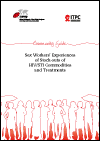
Resource | Publications,
Sex workers experienced stock-outs of antiretroviral drugs for HIV in more than half of the countries that responded to the consultation, in all types of health care settings. Sex workers experience forced treatment interruptions and involuntary medication changes due to stock-outs, and are forced to travel long distances to access commodities and treatments due to stock-outs in their local areas. This ultimately leads to a lack of trust in health services and systems.
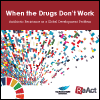
Resource | Publications,
There is a belief that innovation of new antibiotics will out-pace the development and spread of resistant bacteria. However, without rapidly addressing the way antibiotics are currently over- and mis-used, there is no chance of winning this race. Novel antibiotics will continue to play an important role, but they will not be enough. Antibiotics must be seen as a non-renewable resource. And just like in climate change, if this natural resource is exhausted, there will be nothing left for future generations. Managing antibiotic resistance relies on limiting use of antibiotics, discovery of new antibiotics or alternative ways to treat infectious diseases, but also on preventing infections and limiting spread of resistance. There are no quick fixes – antibiotic resistance is a systems failure and thus all sectors need to contribute to a change and jointly securing that antibiotics remain effective.
This report focuses on the Sustainable Development Goals related to poverty, economic growth, inequality, health, food production and the environment.
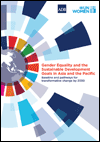
Resource | Publications,
This publication provides the first Sustainable Development Goal assessment of the situation of women and girls in Asia and the Pacific based on data from official sources.
The report establishes a baseline for governments and policy makers to monitor and accelerate progress towards gender equality commitments in the Sustainable Development Goal (SDGs). It identifies data gaps and underscores the necessity of heightened urgency to improve production and use of gender statistics for evidence-based SDG localization. It also provides valuable insight into key catalysts and policy recommendations to assist countries to achieve gender equality by 2030.
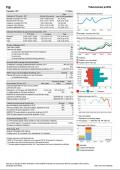
Resource | Reviews and Snapshots,
Tuberculosis country profiles are generated automatically based on data reported by countries and which are held in WHO's global TB database.
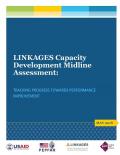
Resource | Publications,
Linkages across the Continuum of HIV Services for Key Populations Affected by HIV Project (LINKAGES), is a five-year cooperative agreement funded by the U.S. President's Emergency Plan for AIDS Relief (PEPFAR) through the U.S. Agency for International Development (USAID).
The LINKAGES project conducts a range of HIV prevention activities to reduce HIV transmission among key populations (sex workers, men who have sex with men, transgender persons and people who inject drugs) and to improve their enrollment and retention in care. These reports offer up-to-date knowledge that can be used to strengthen HIV and AIDS programming for key populations worldwide.
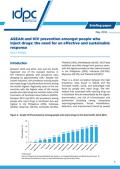
Resource | Publications,
Between 2010 and 2016, Asia and the Pacific registered one of the steepest declines in HIV infections globally, with prevalence rates dropping by approximately 13%. Despite this overall reduction, HIV prevalence among people who inject drugs in Southeast Asia remains among the world’s highest. Regionally, seven of the ten countries with the highest rates of HIV among people who inject drugs are member states of the Association of Southeast Asian Nations (ASEAN).
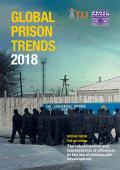
Resource | Publications,
Global Prison Trends 2018 is the fourth edition in Penal Reform International’s annual series, published in collaboration with the Thailand Institute of Justice. The report analyses trends in criminal justice and the use of imprisonment and, as in previous years, these show that while overall crime rates around the world have declined, the number of people in prison on any given day is rising.

Resource | Presentations,
The objectives of this presentation are to estimate the prevalence of HIV and syphilis among people who inject drugs (PWID) and people who use drugs (PWUD) and Hepatitis C Virus (HCV) among PWID, to examine HIV risk behaviors among PWID and PWUD: illicit drug use behaviors, substance abuse, and other health issues including healthcare seeking behaviors and exposure to HIV programs and to estimate the national population size of PWID and PWUD by types of drug used.
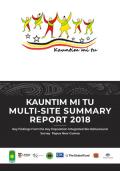
Resource | Publications,
Kauntim mi tu (KM2), an integrated bio-behavioral survey (IBBS) of women and girls who sell and exchange sex (FSW) and men who have sex with men and transgender women (MSM/TG), provides much needed information to support the scale up of essential HIV prevention and treatment services for these populations.
KM2 was conducted in three cities (Port Moresby, Lae, and Mt. Hagen) between June 2016 and December 2017 using respondent-driven sampling (RDS) to recruit participants. Kauntim mi tu had two goals: 1) to conduct updated population size estimations of FSW and MSM/TG in Papua New Guinea; and 2) to collect representative bio-behavioral data about FSW and MSM/TG in order to inform HIV and STI prevention and treatment services and policy. This document presents findings among FSW in all three cities.





